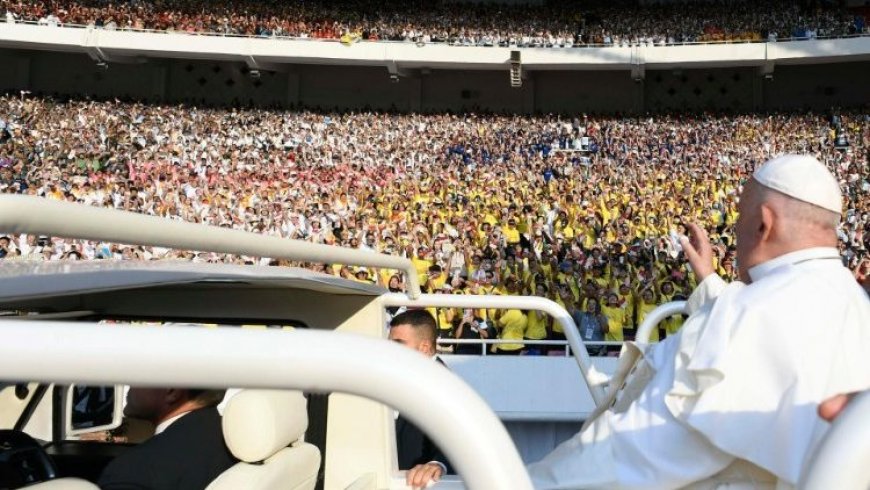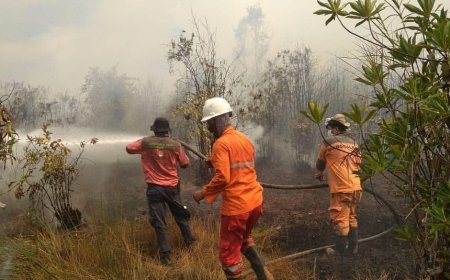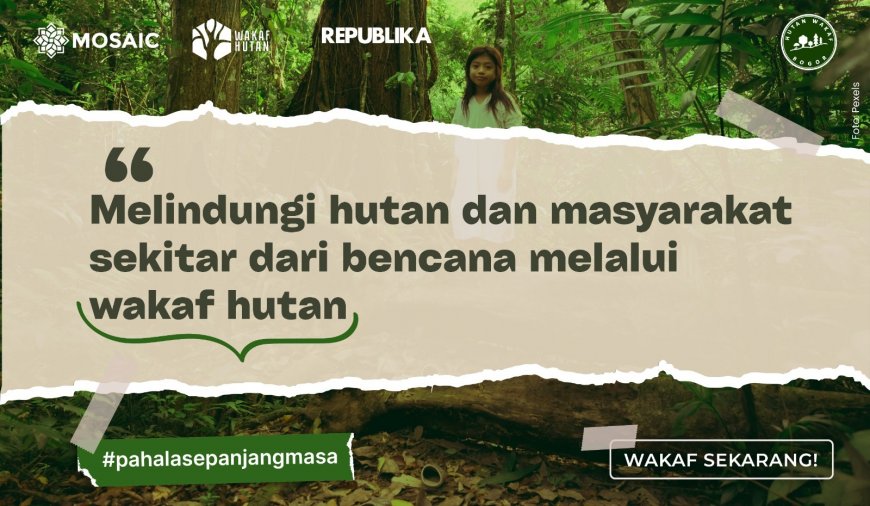Pope Francis and his climate way
Pope Francis watches the 2024 Istiqlal Declaration which reviews around dehumanization and the climate crisis.

MOSAIC-INDONESIA, JAKARTA — Climate and environmental issues have always been concerned to Pope Francis. His climate perspective coud be seen in his apostolic visit to Indonesia on 3-6 September 2024. During his visit to Istiqlal Mosque in Jakarta on Thursday (5/9/2024), the Argentine Pope highlighted how Indonesia is the country with the largest gold mine in the world.
The Pope delivered his speech in front of the state officials and religious figures at the Istiqlal Mosque which is the greatest one in south east Asia. “Indonesia is a great country, a mosaic of cultures, peoples, customs, very rich diversity, which is reflected in the diversity of ecosystems and the surrounding environment,” the Pope said.
“If it is true that you are the hosts of the largest gold mine in the world, know that the most precious treasure is the will that differences do not become a reason for conflict, but to be harmonized in harmony and mutual respect,” he added.
The Pope also witnessed the Istiqlal 2024 Declaration on Establishing the Concord of Peoples for Humanity. The declaration was read by figures from Indonesia's six officially recognized religions. The focus of the declaration is on two serious crises: dehumanization and climate change.
The declaration reveals that the global phenomenon of dehumanization is characterized primarily by widespread violence and conflict, often resulting in an alarming number of casualties. Next point, highlighting man's exploitation of creation. Earth as a home for all human is judged to have contributed to climate change that has caused a range of destructive consequences such as natural disasters, global warming, and unpredictable weather patterns.
This ongoing environmental crisis is also considered to have been an obstacle to harmonious coexistence among communities. Because of that, the religious leaders present gave the four appeals listed in the declaration.
First, the values espoused by the traditions of our religions must be promoted effectively to defeat the culture of violence and indifference that exists in our world.
In truth, religious values should be directed towards fostering a culture of respect, dignity, martial, reconciliation, and fraternal solidarity to overcome dehumanization and environmental enterprise.
Two, religious leaders in particular, inspired by their respective narratives and spiritual traditions, should work together in responding to these crises above identifying their causes, and taking appropriate action.
Third, since there is a single human family throughout the world, interfaith dialogue must be recognized as an effective means of resolving local, regional, and international conflicts, especially those triggered by the abuse of religion. Moreover, our religious beliefs and rituals have a special capacity to touch the human heart thereby fostering a deeper respect for human dignity.
Four, recognize that a healthy, peaceful and harmonious living environment is essential to being a true servant of God and the keeper of creation.
What the Pope witnessed in connection with the Istiqlal Declaration was similar to what the Holy Father delivered during a three-day event at the Vatican that brought together mayors, governors and experts to discuss the theme: “From climate crisis to climate resilience” held last May.
During the event, Pope Francis delivered a speech during an audience with participants.
In his speech, the pope lamented the worsening data on climate change, and called for immediate action “to protect people and nature,” he said, as quoted by Vatican News.
According to the Pope, developing countries suffer more directly from climate change, he asked political leaders from different countries whether “we are working for a culture of life or a culture of death”.
“Richer countries, about 1 billion people, produce more than half the heat-trapping pollutants,” Pope said. “In contrast, the 3 billion poorer people only contribute less than 10%, yet they suffer 75% of the resulting damage.”
From a victim of the climate crisis to an agent of change
Pope Francis reminded that environmental destruction is an offense against God and a structural sin that endangers everyone.
“We are faced with different but interrelated systemic challenges: climate change, loss of biodiversity, environmental damage, global disparities, lack of food security and threats to the dignity of communities affected by them,” he said.
Each of these problems, the Pope continued, must be dealt with urgently and collectively to protect the world's poor, especially women and children, who bear a disproportionate burden.







